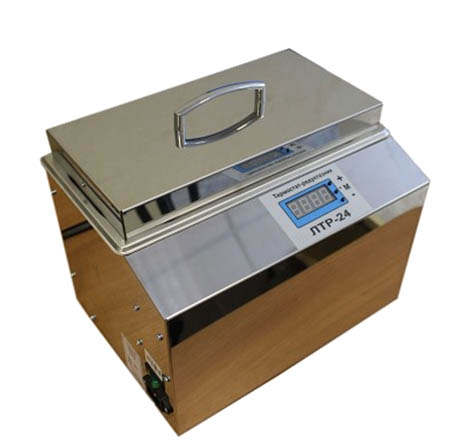Why food prices are rising and what's next. Deputy Prime Minister Subbotin made an honest forecast

 Express tests for determining the residual amount of β-lactams, tetracyclines, chloramphenicol, streptomycins in milk, whey
Express tests for determining the residual amount of β-lactams, tetracyclines, chloramphenicol, streptomycins in milk, whey PIONEER MEIZHENG BIO-TECH (5 in1) JC1165 / Rapid tests for the determination of the residual amount of halofuginone, flavomycin, novobiocin, flunixin, dexamethasone / prednisolone in milk, whey
PIONEER MEIZHENG BIO-TECH (5 in1) JC1165 / Rapid tests for the determination of the residual amount of halofuginone, flavomycin, novobiocin, flunixin, dexamethasone / prednisolone in milk, whey
November 23, Minsk. Food prices in Belarus will objectively continue to rise against the backdrop of the global situation, but the authorities are using various mechanisms to curb this process as much as possible. This was stated to journalists by Deputy Prime Minister Alexander Subbotin, who oversees the agricultural sector, BelTA has learned.
Journalists asked how the growing demand and prices for food in the world will affect the situation inside Belarus.
There will be no shortage - this is an axiom"I will say this: there will be no shortage - this is 100%. Because we produce many times more than we need. And because the first thing for us is our own food security and ensuring the domestic market. This is a constant, an axiom," emphasized the vice-premier.
Rise in prices is objectively unavoidableAs for the rise in prices, Alexander Subbotin said that objectively this cannot be avoided. And this is due to the growing global conjuncture. “If we start to block, somehow stifle prices on the domestic market, and the price in the Russian Federation will be more interesting, the same people will buy in the store and transport goods there by buses, cars. That is, there will be an overflow in any case. we don't have the same in the Union State," he said.
In addition, the Deputy Prime Minister continued, the prices of goods that in one way or another affect the final cost of agricultural products, including fertilizers, some imported components, spare parts and more, are rising in price.
The government is working for maximum containment“Everything is growing objectively. Therefore, we won’t be able to keep the price without harming the manufacturer somewhere. But there are a large number of mechanisms for leveling these jumps. This is targeted support for the poor, this is somewhere limiting margins, limiting the profitability of retail chains” - said Alexander Subbotin.
"All these mechanisms are known in the government, we are actively using them. And we are trying to contain the rise in prices as much as possible," the Deputy Prime Minister stressed.
Export volumes are increasing and this is a plusAt the same time, the growth of world food prices for Belarus has a downside, because the country not only provides itself with the appropriate goods for full demand, but also supplies large volumes for export. President of Belarus Alexander Lukashenko sets the goal of achieving the level of food and food exports at $7 billion.
Alexander Subbotin assesses this as a strenuous task. “We have already made 112.6% this year even in 9 months (against the level of last year. - Note by BelTA). This is about $4.7 billion,” he said. “We will step over $6 billion this year. and $ 7 billion - as the situation will develop. But we will try as quickly as possible. I'm afraid to guess. It will turn out in 2 years, so in two, in 3, so in three. We are moving towards this."
In general, the vice-premier noted, Belarusian producers are increasing their exports both by increasing the volume of products supplied, and, of course, rising prices also help: “Prices are really growing all over the world. This is noted by the UN, all agricultural departments. meat, and milk , and ordinary grain. We look at all stock reports - they are growing unprecedentedly compared to last year. Of course, this helped us a lot in exports, but we also added in physical volume - more milk, cheeses, meat, meat products" .
Development in conditions of turbulence and sanctionsAlexander Subbotin believes that the ending agrarian season for Belarus was one of the most difficult in the country's sovereign history. “Nevertheless, despite what is happening around, despite the political and financial turbulence, price fluctuations (energy, fertilizers are becoming more expensive all over the world), we are slowly adding,” he said.
Journalists also asked if the sanctions affect the situation with the export of Belarusian food. In this regard, the Deputy Prime Minister noted that in world practice, as a rule, sanctions do not apply to such areas as food or medicine.
"No one has refused food. We have mastered the markets in 116 countries, so we hold them confidently. The only thing is that we have traded with a little more than 100 (countries. - Approx. BelTA) this year. But our markets are open and shelves are available in 116 countries.Even despite the tough and difficult relations with the EU, we add exports there.They protect their market very strongly, not letting our milk, cheeses, but some of our separate food lines, especially technical casein for their production, they take very intensively," said Alexander Subbotin.

























































